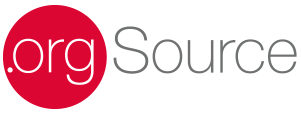The Power of Convincing

Have you ever visited a psychic? Just for fun, of course. I wouldn’t suggest that association executives take their cues from tea leaves or the Tarot deck.
A little mystery is exciting, right? And, it wouldn’t be nearly as entertaining if those predictions didn’t occasionally ring true.
Far be it from me to “dis” anyone’s favorite guilty pleasure, but those soothsayers aren’t necessarily channeling mystical powers to access the future. They are masters at what my colleague Adele Cehrs calls convincing statements.
Adele, who is the CEO and Founder of Convincing Company, describes this technique as using an open-ended comment to encourage someone to reveal additional significant information.
For example, if your boss prompts you with a compliment like this, “You have incredible untapped potential.” That praise might inspire you to respond by saying, “Thank you. It’s great to be recognized. I know I can do more, and I’ve always wanted to manage a membership marketing campaign.”
By leaving you space to answer, your boss has discovered something important about your motivations that you might not have otherwise revealed.
This is just one of the strategies that Adele has honed over years of helping associations and corporations get noticed. It’s a technique that is described in her book, “Convince Me,” due to be published in September.
Adele is a globally recognized publicist who has served as a public relations strategist, corporate counsel, and crisis management consultant for clients such as Facebook, Johnson & Johnson, Samsung, DuPont, Lockheed Martin, Verizon, and President Joe Biden.
Adele’s business partner Chip Massey is a Former FBI Special Agent. Chip has led high-profile criminal cases, investigated the September 11th terrorist attacks, helped the CIA track down spies, and spearheaded the New York FBI Office’s Crisis Negotiations.
Together, these two make a team with unique skills and experience. As a recent guest on the Association 4.0 Podcast, Adele and I talked about some of their techniques and how associations can use convincing strategies to win higher member engagement and add impact to their public profiles.
Begin With Agreement
I asked Adele what advice she has for associations in the current environment and how we should be communicating differently with our audiences.

“Associations have such important missions,” Adele responded. “But it’s easy to get lost trying to explain all that value at once. Sometimes the reasons why people should join get muddled with other types of messaging.
“In our book, we write about the science of persuasion. One of the most interesting lessons is counterintuitive. Never lead with your strongest argument. Convincing is a gradual process. The tendency is to begin the conversation with what we are passionate about. But it’s actually best to start from a point of agreement rather than personal enthusiasm. People need time and space to consider an idea from a new perspective.
“For example, we were asked to work on President Biden’s Cancer Moonshot. His team wanted to promote universal health care as one of the paths toward curing cancer.
“We thought the public was not ready to hear that new messaging. We recommended starting with these points of agreement.
- We’ve all known someone who has been affected by cancer.
- The cost of treatment is astronomical.
- We need to help cancer victims receive improved care.
After those ideas have been established, we can introduce the moonshot.
- By 2025, we want to have $100 million dedicated to finding a cure for cancer.
It’s important to stop talking here. I’ve got to leave you with something to consider.
“Your outreach needs to speak to the audience in a language they understand and find interesting. Here’s another example from our experience. The Infectious Diseases Society of America establishes the guidelines for managing Lyme Disease. Changes in those protocols sometimes meant that insurance reimbursement and physician care also changed. As you can imagine, the new recommendations caused patients to become upset with the organization. There were even protests.
“Working with IDA to discover points of agreement, we learned that there was a tremendous need for funding to research. We advised the group to refocus attention on their efforts to raise money and awareness around that issue. When constituents understood what the organization was doing to support them, IDA’s image improved, and the protests stopped.”
Adele sees convincing as a continuum. You lead people along a journey of ideas offering interest and encouragement to gradually influence their thought process.
Own the Trends
As someone who is laser focused on market drivers, I was curious where Adele sees advantage for associations.

“There is tremendous opportunity for associations to become trend setters,” Adele observes. “Professional organizations have their fingers on the pulse of industry. They have the research and the data to identify innovations while they are still bubbling to the surface. Use that insight. Starting a trend is easier than people think. It’s about being the first to put a name on a phenomenon that is already happening.
“We interviewed Joe Pulizzi, who has been called the godfather of content marketing. Content marketing has been around for a long time. Early famous examples include Benjamin Franklin’s “Poor Richard’s Almanack” issued to promote his printing business and the “Michelin Guide,” designed to sell tires by offering vehicle maintenance and travel information to the public.
“Joe took a sleepy concept and turned it into a raging trend. He wrote books about it, created the Content Marketing Institute and an event called Content Marketing World, which he sold in 2016 for $17.6 million. Most people don’t name the trend, take credit for it, or promote it. That’s their mistake. In order to be a trendsetter, you need to take possession of the idea.”
Talking with Adele is always an adventure. One of her most interesting comments came when I asked what she sees on the horizon for the public relations industry.
“While my background is in PR, I see myself as an entrepreneur or a business strategist,” Adele replied. “I look at issues through the lens of communications and marketing. PR is just one tool in the box. Most of us are using the same persuasion techniques that we learned in the third grade. Trying something new feels risky. We stay with what we know, and we’re only moderately convincing.
“Associations get stuck thinking about group satisfaction. If an idea doesn’t work for one member, it’s easy to reject the concept. That’s not how businesses that are pushing the envelope behave. You can’t please everyone. Have a communication strategy to address the naysayers. But don’t allow the very vocal 10 percent to stop you from moving forward and providing value to the other 90 percent.”
Be in the Moment
In addition to being innovators, it’s important to learn from what is happening in the moment. TikTok is a perfect example. That’s where the younger generation is, and there are plenty of skilled marketers on the platform vying for their attention.
“TikTok is a lesson in convincing strategy,” Adele noted. “Viewing all those enticing bite-size messages over time leads you down a continuum and drives traffic. Take a cue from Gen Z. Identify who the accomplished influencers are in your organization and include them in your persuasive strategy. Don’t be afraid of the cutting edge, use it to your advantage.”
My conversation with Adele was a great reminder of the power of persuasion. We may not be psychics, but we can be even more convincing when we apply the right techniques.
